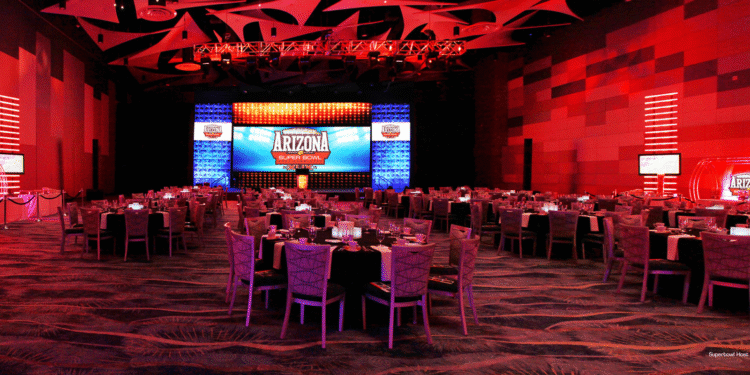Planning and executing a corporate event is an intricate task that can have a significant impact on a company’s brand and internal cohesion. In essence, corporate functions serve as a mirror reflecting the organisation’s values, culture, and goals. They are opportunities to strengthen relationships, share knowledge, and celebrate achievements. Whether it’s an annual conference, awards dinner, or product launch, a well-rounded approach can transform a routine gathering into an extraordinary experience for every attendee.
Understanding Your Objectives
Everything begins with a clear understanding of the goals and expectations. A successful corporate event starts with defined objectives. Whether the purpose is to motivate staff, build client relationships, or showcase a new product, each goal will influence how the event is planned and executed. Clearly outlined objectives are the compass that guides all aspects of the event, from the theme to the choice of speakers and activities.
Defining Your Audience
Know your audience—this is the cardinal rule in event planning. A deep understanding of who will be attending is crucial for tailoring content and activities that resonate. Are the attendees high-level executives or creative professionals? Is the event aimed at internal staff or external stakeholders? Answering such questions will ensure that the programme is relevant and engaging.
Choosing the Right Venue
The venue sets the scene for your corporate event. It speaks volumes about the company’s image and can significantly affect the attendees’ experience. As such, the chosen venue should not only reflect the event’s ethos but also be practical, accessible, and appropriate for the size and type of event you are planning.
Impeccable Logistics
Flawless logistics lie at the heart of any successful corporate function. This encompasses everything from transportation and accommodation arrangements to catering and technical support. Attention to detail is key; even minor hiccups can overshadow the overall experience. A seamless flow from start to finish is what makes an event appear effortless and keeps attendees focused on the intended message.
Innovative Event Technology
Introducing innovative technology can enhance the experience and leave a lasting impression. Whether it’s an event app that keeps attendees informed or interactive solutions that engage guests, technology can be a differentiator. Ensuring that the tech used is user-friendly and adds genuine value is important.
High-Quality Content
Content is king, even in the realm of events. From keynote speeches to workshops, the quality of the content delivered will significantly impact attendees’ perceptions. It is essential to select speakers who are not only experts in their fields but also have the charisma and communication skills to captivate an audience.
Networking Opportunities
A major value component of any corporate event is the potential for networking. Facilitating opportunities for interaction—such as break-out sessions, mixers, or dedicated networking zones—can add immense value to the function and foster relationships that benefit all involved.
Engaging Entertainment
Entertainment plays a crucial role in setting the tone. It could be a musical act, a motivational speaker, or an immersive experience; the key is to choose entertainment that aligns with the event’s tone and enhances the overall atmosphere, leaving attendees with a memorable takeaway.
Robust Marketing and Communication
The way an event is marketed can significantly impact its success. Targeted communication before, during, and after the event ensures maximum engagement. Leveraging various channels such as social media, email marketing, and PR can amplify the reach and involvement.
Feedback and Follow-up
The true measure of an event’s success often lies in the aftermath. Collecting feedback from participants allows event planners to gauge the effectiveness of the event and identify areas for improvement. A follow-up to thank attendees and offer additional resources reinforces the event’s value and keeps the dialogue open for future engagement.
Sustainable Practices
As awareness of environmental issues grows, incorporating sustainable practices into event planning is becoming increasingly important. This could mean a paperless event, eco-friendly materials, or a menu featuring local, seasonal produce. Such considerations are not only ethically sound but can also resonate positively with attendees.
Budget Management
Staying within budget while delivering a high-impact event is a delicate balancing act. Transparent cost tracking and smart allocation of resources ensure that you can deliver an exceptional experience without compromising financial prudence.
Professional Event Management
For those seeking expertise in conceptualising and executing high-calibre events, professional event management is indispensable. Employing seasoned professionals can relieve the internal burden of planning and allows for the seamless orchestration of all facets involved in bringing an event to life.
Conclusion
An understated yet powerful lever for advancing corporate objectives, well-crafted corporate functions have the potential to leave a profound impact on all participants. The mastery of event planning lies in the confluence of creativity, precise planning, and execution. By focusing on each detail with respect to the bigger picture, companies can create events that not only meet but exceed expectations, fostering a culture of excellence and connectivity.
Effortlessly executed corporate events provide a platform for businesses to communicate key messages, build and deepen relationships, and showcase the vibrancy and vision of the company. Such events are not a sidebar to business operations but a core strategy for company growth and brand elevation. By bearing in mind the key principles outlined in this guide, organisations can ensure their functions are not just gatherings, but landmarks of success.













